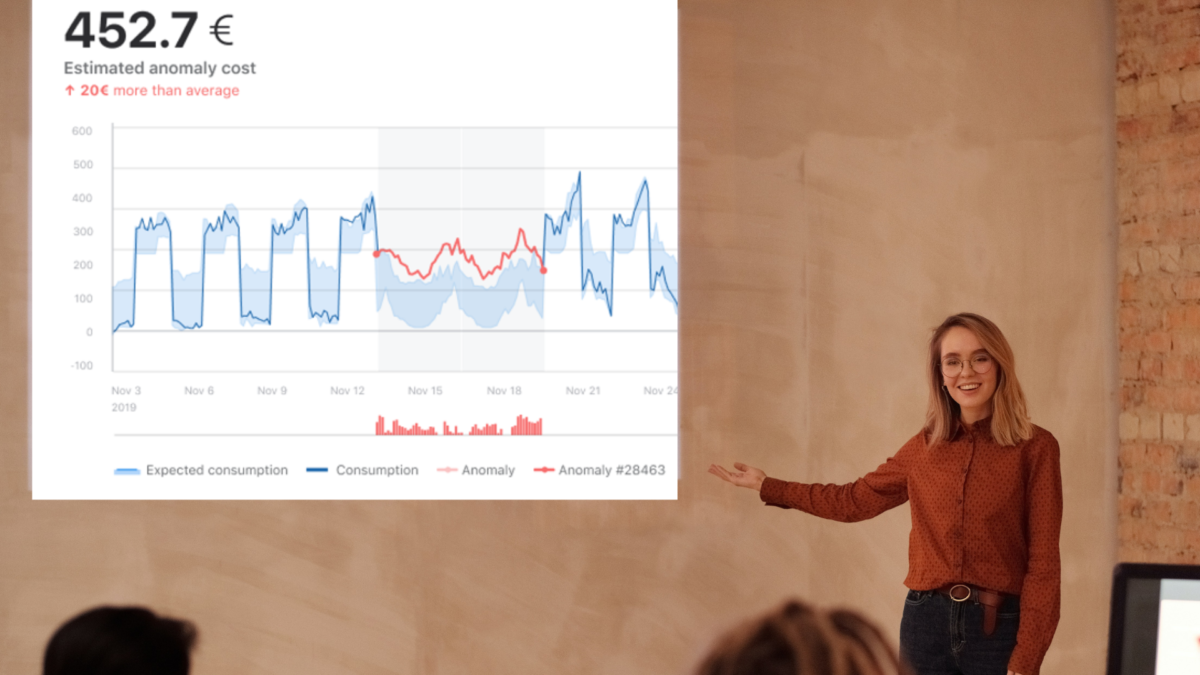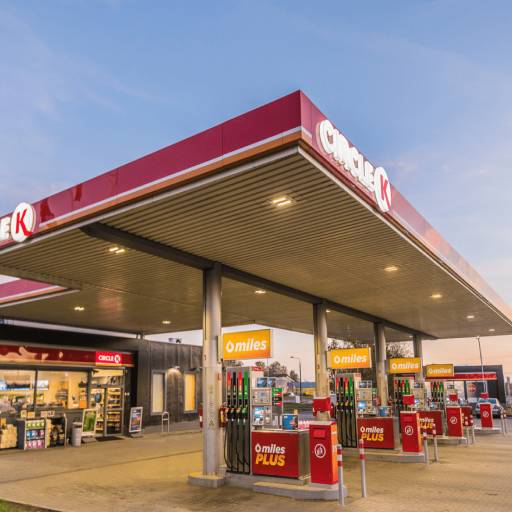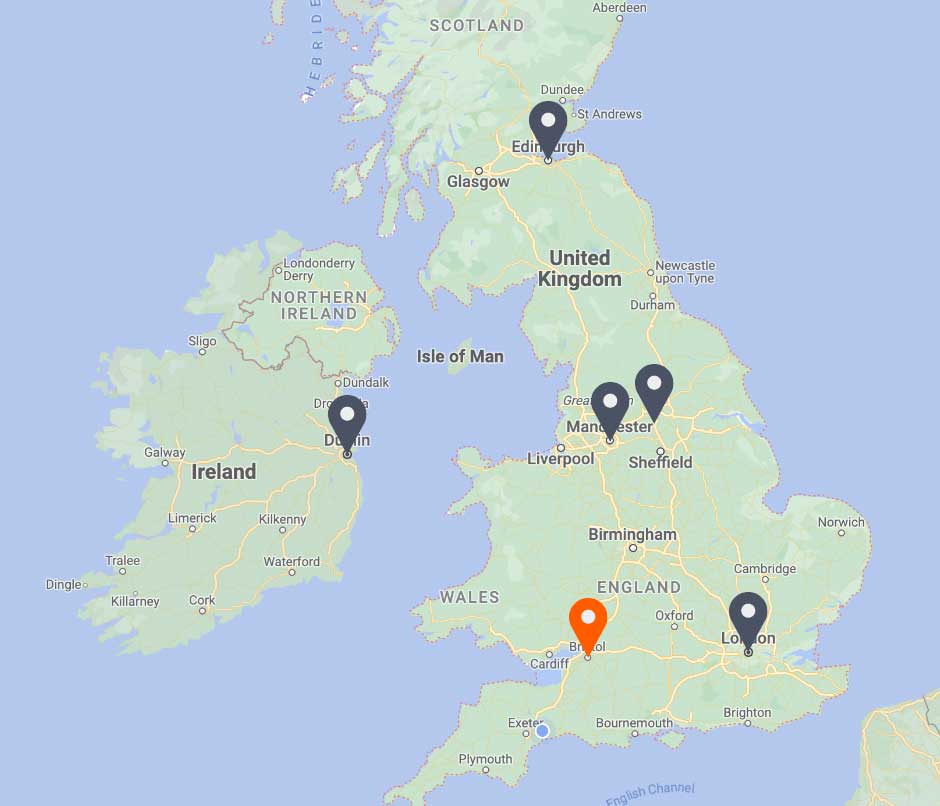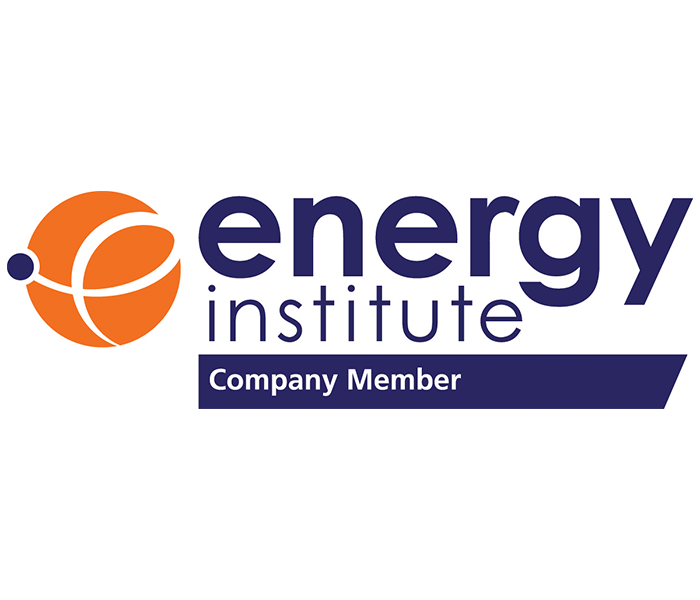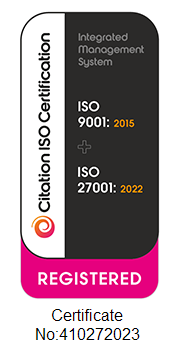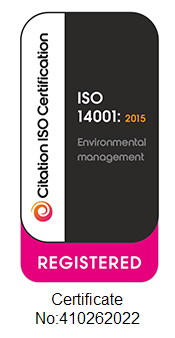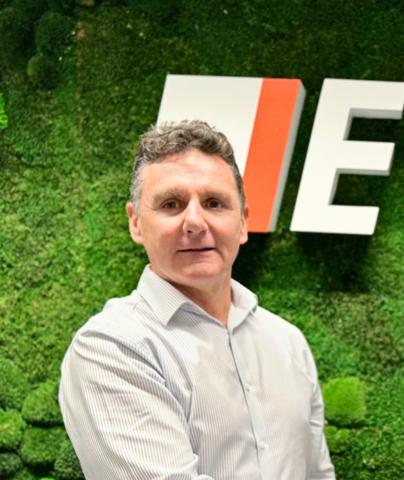
NET ZERO CONSULTING
SMART NET ZERO
Energy Performance Audit Main Benefits:
Maintaining a firm grip on the condition of building services equipment within your properties provides you with the knowledge and insight to ensure budget certainty, and avoid plant and building downtime which will impact your operations and adversely affect relations with any tenants. In addition, ensuring that the contractors you are employing to undertake Planned Preventative Maintenance works are delivering against both their contractual requirements and best practice guidelines, ensures that your buildings are being managed and maintained in an optimal manner and you are receiving best value form your service providers. We will undertake thorough audits of your buildings, ensuring that all opportunities for improvement and issues regarding maintenance and plant condition are identified, and provide robust plans for enhancement.Lorem ipsum dolor sit amet, consectetur adipiscing elit. Ut elit tellus, luctus nec ullamcorper mattis, pulvinar dapibus leo. xfgdfgd
Lorem ipsum dolor sit amet, consectetur adipiscing elit. Ut elit tellus, luctus nec ullamcorper mattis, pulvinar dapibus leo.w534457567
Lorem ipsum dolor sit amet, consectetur adipiscing elit. Ut elit tellus, luctus nec ullamcorper mattis, pulvinar dapibus leo. qrtryyunm vbxc
Lorem ipsum dolor sit amet, consectetur adipiscing elit. Ut elit tellus, luctus nec ullamcorper mattis, pulvinar dapibus leo. 3545657678
- Smart Net Zero
- Read Our Latest Blog
- Find out case studies
Navigate the Energy Landscape with Smart Net Zero: Practical Sustainable Net Zero Solutions for Business Energy Savings
ETS is transforming the way organisations embrace sustainability globally. No longer is there a need to compromise between environmental and financial commitments – reducing carbon output is directly related to reducing energy overheads. Discover how your organisation can fulfill its environmental pledges with a roadmap to net zero while significantly cutting its energy bills.
Welcome to Smart Net Zero: where sustainability meets intelligence. Our end-to-end net zero consulting solution is your strategic partner on the journey to achieving net-zero carbon emissions. It’s not just about environmental responsibility; it’s about securing your organisation’s future in a world that demands cleaner, more efficient operations.
What is Smart Net Zero?
Smart Net Zero is your comprehensive net zero solution for navigating the complex landscape of carbon neutrality. It’s a commitment to sustainability without sacrificing profitability. Our net zero consulting service empowers organisations to reduce carbon emissions, cut energy costs, and create a positive environmental footprint, all while maintaining competitiveness and resilience.
Why Choose Smart Net Zero?
Strategic Roadmap
We don’t just aim for net zero; we plan the path to get there. Our experts craft a tailored strategy for your organisation, ensuring each step is meaningful and measurable.
Cutting-Edge Technology
Embrace the latest advancements in sustainable technologies. Our net zero solutions integrate state-of-the-art tools and practices to drive efficiency and innovation.
Cost-Efficiency
We understand the importance of managing costs. Smart Net Zero optimises energy use to deliver long-term financial benefits.
Environmental Impact
Make a real difference in the fight against climate change. Achieve net zero and join the ranks of environmentally responsible organisations.
Key Features of Smart Net Zero
ETS leverage a ‘Smart’ technology led approach to Net Zero carbon consulting & management through the integration of a full range of solutions across the building technology market including:
Connected Buildings
The application of cutting edge r technology to provide unsurpassed building performance data & remote diagnostics solutions
Energy Management Centre
Ongoing energy and technical support from our Energy Management Centre to provide end-to-end energy consumption monitoring and building efficiency control
BMS & Automation
Integrating the latest IoT solutions to transform legacy systems into smart buildings, offering multiple data points and ability to identify opportunities to reduce operational costs & carbon output.
Internal Air Quality
A range of air quality parameters are tracked in real-time and automatically adjusted to create a comfortable and environmental safe space for building occupants and ensure maximum carbon neutrality.
How can your organisation benefit from Smart Net Zero?
Achieving net zero carbon status can offer several benefits for businesses:
Enhanced reputation and brand value
Being committed to net zero demonstrates environmental leadership and responsibility which can enhance a company’s reputation, brand value, and stakeholder trust. It can attract environmentally conscious customers, investors, and employees who align with the company’s sustainability goals.
Competitive advantage
As environmental concerns grow, companies that have achieved net zero carbon status can gain a competitive edge over their peers. They may be preferred by customers and partners who prioritise sustainability and are more likely to engage in business relationships that align with their values.
Cost savings and operational efficiency
Pursuing net zero often involves adopting energy-efficient practices, transitioning to renewable energy sources, and optimising operations. These aspects of Smart Net Zero lead to reduced energy consumption, lower operating costs, and increased operational efficiency.
Regulatory compliance and risk mitigation
As governments worldwide implement stricter environmental regulations and carbon pricing mechanisms, businesses that have already achieved net zero carbon status will be better positioned to comply with evolving requirements. By proactively addressing their emissions, companies can mitigate the risks associated with potential penalties, carbon taxes, and future regulations.
Access to new markets and investment opportunities
Some markets and investors are increasingly prioritising environmentally sustainable practices through Environmental, Social Governance (ESG). Achieving net zero carbon status can open doors to new markets, partnerships, and investment opportunities that specifically target sustainable businesses and projects.
Resilience and future-proofing
Net zero initiatives contribute to building resilient business models that are better prepared for the challenges of a changing climate and evolving market dynamics. By proactively addressing climate risks and reducing dependence on carbon-intensive practices, companies can future-proof their operations and reduce vulnerabilities associated with climate change impacts.
Don’t wait for sustainability to become a corporate necessity. Lead the way with Smart Net Zero and transform your organisation into a beacon of environmental responsibility. It’s not just a commitment; it’s a competitive edge in a world that demands smarter, greener solutions.
Ready to embark on your journey to Smart Net Zero? Contact us today to start crafting your customised path to a sustainable, profitable future. Together, we’ll redefine what it means to be a responsible, forward-thinking organisation in the 21st century.
The future is in your hands. Let’s take the first step toward Net Zero today!
Accelerating Net Zero Progress: Utilising Data Models for Effective Planning and Carbon Reporting.
Steps to Net Zero: Measuring Emissions and Starting Your Journey
Smart Energy Management as a Service
READ OUR CASE STUDIES
Wokingham Borough Council – 49% Proven energy savings
Circle K – Significant Cost Savings and HVAC Control Upgrade

What is Smart Energy Management?
Smart energy management uses real-time data analytics and the latest technologies to help businesses reduce their energy consumption; saving them money in the process. This is achieved using smart energy management systems, which monitor, control, measure, and optimise energy consumption in a building, factory, or any facility.
The data from the smart energy management system is then analysed, to identify areas of opportunity where consumption could be reduced and money savings made. Smart energy management is becoming increasingly vital for businesses, especially in the current climate of rising energy prices and carbon emission targets.
Your smart energy management experts
We don’t just install smart energy management systems – we have an expert team of building engineers, controls specialists, data scientists and energy and carbon managers to provide a full end to end service.
Our combined engineering, strategy and technology expertise is what sets us apart – ETS is where the digital meets physical, to save you money, ensure compliance, reach sustainability goals and maximise building performance.
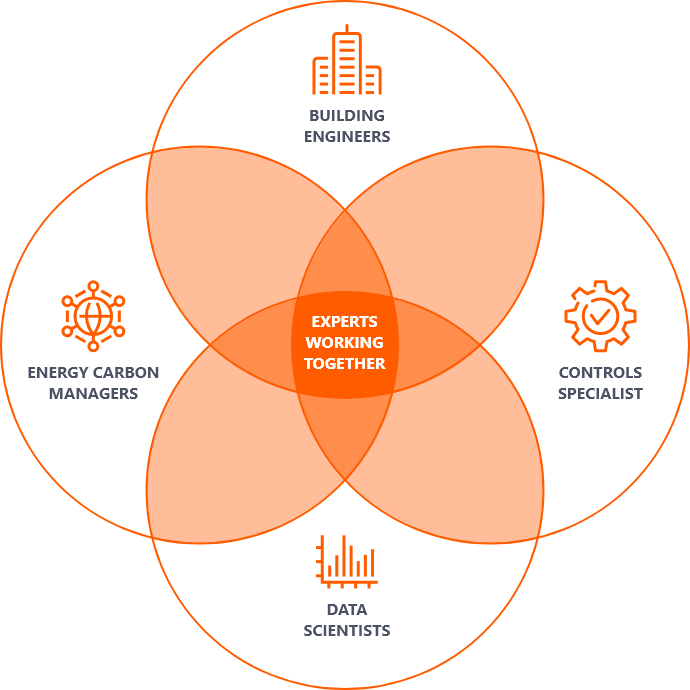
SERVICES we offer
ENERGY EFFICIENCY
Lorem ipsum dolor sit amet. Quo quam consequuntur est repellat molestias est autem consectetur ex conse quatur cupiditate et possimus harum. Et omnis numq uam aut ipsam galisum hic quos natus et consequatur officiis non officia sequi olestias est autem.
DATA ANALYTICS
Lorem ipsum dolor sit amet. Quo quam consequuntur est repellat molestias est autem consectetur ex conse quatur cupiditate et possimus harum. Et omnis numq uam aut ipsam galisum hic quos natus et consequatur officiis non officia sequi olestias est autem.
Carbon consultancy
Lorem ipsum dolor sit amet. Quo quam consequuntur est repellat molestias est autem consectetur ex conse quatur cupiditate et possimus harum. Et omnis numq uam aut ipsam galisum hic quos natus et consequatur officiis non officia sequi olestias est autem.
Amend building services scheduling
We recommend amending building services plant and equipment schedules to align more closely with your amended operating hours. This should be done through the BMS (Building Management System) wherever possible, ensuring that all equipment is put into ‘auto’ and not left on ‘hand’ settings. This will ensure that the equipment is appropriately controlled through the BMS and aligned with updated scheduling.
Reduce any heating and air conditioning
You should reduce set points for space heating and introduce setbacks for out of hours occupancy, though you shouldn’t turn off boilers and heating equipment off fully. There will need to remain some level of cycling for building services equipment to allow for frost protection and building fabric protection. You’ll also need to take into account any partial occupancy throughout the shutdown period.
Much of the same applies to air conditioning and ventilation. Ventilation equipment should be reduced, but not turned off completely. Consideration should also be given to the use of reduced and localised ventilation through fan coil units if possible, to reduce any reliance on centralised whole-building space conditioning.
Turn off lighting and small power items where possible
Check any and all lighting that isn’t controlled by the BMS and turn off where possible, but be sure to maintain any lighting levels required to ensure safety in certain environments – for example, external lighting in urban areas as appropriate. Lighting should be reduced as much as possible, but maintaining safety while doing so is key.
Building managers should also ensure that once the building is vacated, all computers, screens and audio-visual equipment are fully turned off and not left in sleep mode. Similarly, all small power items should be turned off where appropriate and not left in hibernate.
Maintain critical water systems
It’s also crucial to take the right approach to your water systems when shutting down your building. Critical systems should be maintained, and operation kept in-line with the Health & Safety Executives Approved Code of Practice L8 to mitigate the risk of legionella upon building reactivation.
Continue to track energy consumption
It’s important to align your updated temporary strategy with any energy management software or external bureau that is being used by the building. Any alerting parameters for excessive consumption should be adjusted to align with the new operational profile.
This will enable you to have a good handle on any potential areas with excessive consumption during a shutdown or lower occupancy period. Additionally, it’s also a great way to gain insight into your baseline consumption within the property. This will then enable you to make better energy management decisions when the building comes back into full operation.
Final thoughts
In short, there’s a lot of things that can be done to minimise energy usage while maintaining building integrity and quality during a shutdown – the above represent some of the key considerations.
For additional guidance, we recommend the Building Engineering Services Association’s SFG30: Mothballing and Reactivation, which provides good holistic guidance on this topic.

Phil Bilyard
Operations Director

Phil Bilyard
Description
We combine engineering, technology and strategy expertise

Phil Bilyard
Description
All projects include Director level involvement from start to finish

Phil Bilyard
Operations Director

Phil Bilyard
Description
OUR PURPOSE:
TO TRANSFORM THE WORLD FOR THE BETTER THROUGH ENGINEERING INTELLIGENCE

Phil Bilyard
Description


Phil Bilyard
Operations Director

Phil Bilyard
Description
We combine engineering, technology and strategy expertise
All projects include Director level involvement from start to finish
OUR PURPOSE:
TO TRANSFORM THE WORLD FOR THE BETTER THROUGH ENGINEERING INTELLIGENCE


CLOSE X
Phil Bilyard Operations Director
Phil has a Graduateship with the City &Guilds and a HND in Engineering. He is an Incorporated Engineer (IEng), Chartered Energy Manager, ESOS Lead Assessor and CIBSE Accredited Air Conditioning Inspector. Phil is also a Full Member of the Energy Institute (MEI), Institution of Engineering and Technology (MIET) and an Associate Member of CIBSE (ACIBSE).
Phil started his career providing specialist engineering support in the Army’s Corps of Royal Engineers before pursuing a career in facilities management. He has work across a range of sectors and undertaken a number of roles including Building Services Engineer, Electrical Specialist, Project Manager and Contract Manager. His expertise includes Air and Water Quality Management, Low Carbon Consulting and Project Management.
After joining ETS in 2010 as a Senior Consulting Engineer, Phil quickly progressed into the role of Operations Director. His role at ETS includes managing our operational team in the delivery of technical consultancy and energy management for our Retail and FM & Property clients.


CLOSE X
Phil Bilyard Operations Director
Phil has a Graduateship with the City &Guilds and a HND in Engineering. He is an Incorporated Engineer (IEng), Chartered Energy Manager, ESOS Lead Assessor and CIBSE Accredited Air Conditioning Inspector. Phil is also a Full Member of the Energy Institute (MEI), Institution of Engineering and Technology (MIET) and an Associate Member of CIBSE (ACIBSE).
Phil started his career providing specialist engineering support in the Army’s Corps of Royal Engineers before pursuing a career in facilities management. He has work across a range of sectors and undertaken a number of roles including Building Services Engineer, Electrical Specialist, Project Manager and Contract Manager. His expertise includes Air and Water Quality Management, Low Carbon Consulting and Project Management.
After joining ETS in 2010 as a Senior Consulting Engineer, Phil quickly progressed into the role of Operations Director. His role at ETS includes managing our operational team in the delivery of technical consultancy and energy management for our Retail and FM & Property clients.


CLOSE X
Phil Bilyard Operations Director
Phil has a Graduateship with the City &Guilds and a HND in Engineering. He is an Incorporated Engineer (IEng), Chartered Energy Manager, ESOS Lead Assessor and CIBSE Accredited Air Conditioning Inspector. Phil is also a Full Member of the Energy Institute (MEI), Institution of Engineering and Technology (MIET) and an Associate Member of CIBSE (ACIBSE).
Phil started his career providing specialist engineering support in the Army’s Corps of Royal Engineers before pursuing a career in facilities management. He has work across a range of sectors and undertaken a number of roles including Building Services Engineer, Electrical Specialist, Project Manager and Contract Manager. His expertise includes Air and Water Quality Management, Low Carbon Consulting and Project Management.
After joining ETS in 2010 as a Senior Consulting Engineer, Phil quickly progressed into the role of Operations Director. His role at ETS includes managing our operational team in the delivery of technical consultancy and energy management for our Retail and FM & Property clients.


CLOSE X
Phil Bilyard Operations Director
Phil has a Graduateship with the City &Guilds and a HND in Engineering. He is an Incorporated Engineer (IEng), Chartered Energy Manager, ESOS Lead Assessor and CIBSE Accredited Air Conditioning Inspector. Phil is also a Full Member of the Energy Institute (MEI), Institution of Engineering and Technology (MIET) and an Associate Member of CIBSE (ACIBSE).
Phil started his career providing specialist engineering support in the Army’s Corps of Royal Engineers before pursuing a career in facilities management. He has work across a range of sectors and undertaken a number of roles including Building Services Engineer, Electrical Specialist, Project Manager and Contract Manager. His expertise includes Air and Water Quality Management, Low Carbon Consulting and Project Management.
After joining ETS in 2010 as a Senior Consulting Engineer, Phil quickly progressed into the role of Operations Director. His role at ETS includes managing our operational team in the delivery of technical consultancy and energy management for our Retail and FM & Property clients.


CLOSE X
Phil Bilyard Operations Director
Phil has a Graduateship with the City &Guilds and a HND in Engineering. He is an Incorporated Engineer (IEng), Chartered Energy Manager, ESOS Lead Assessor and CIBSE Accredited Air Conditioning Inspector. Phil is also a Full Member of the Energy Institute (MEI), Institution of Engineering and Technology (MIET) and an Associate Member of CIBSE (ACIBSE).
Phil started his career providing specialist engineering support in the Army’s Corps of Royal Engineers before pursuing a career in facilities management. He has work across a range of sectors and undertaken a number of roles including Building Services Engineer, Electrical Specialist, Project Manager and Contract Manager. His expertise includes Air and Water Quality Management, Low Carbon Consulting and Project Management.
After joining ETS in 2010 as a Senior Consulting Engineer, Phil quickly progressed into the role of Operations Director. His role at ETS includes managing our operational team in the delivery of technical consultancy and energy management for our Retail and FM & Property clients.


CLOSE X
Phil Bilyard Operations Director
Phil has a Graduateship with the City &Guilds and a HND in Engineering. He is an Incorporated Engineer (IEng), Chartered Energy Manager, ESOS Lead Assessor and CIBSE Accredited Air Conditioning Inspector. Phil is also a Full Member of the Energy Institute (MEI), Institution of Engineering and Technology (MIET) and an Associate Member of CIBSE (ACIBSE).
Phil started his career providing specialist engineering support in the Army’s Corps of Royal Engineers before pursuing a career in facilities management. He has work across a range of sectors and undertaken a number of roles including Building Services Engineer, Electrical Specialist, Project Manager and Contract Manager. His expertise includes Air and Water Quality Management, Low Carbon Consulting and Project Management.
After joining ETS in 2010 as a Senior Consulting Engineer, Phil quickly progressed into the role of Operations Director. His role at ETS includes managing our operational team in the delivery of technical consultancy and energy management for our Retail and FM & Property clients.


CLOSE X
Phil Bilyard Operations Director
Phil has a Graduateship with the City &Guilds and a HND in Engineering. He is an Incorporated Engineer (IEng), Chartered Energy Manager, ESOS Lead Assessor and CIBSE Accredited Air Conditioning Inspector. Phil is also a Full Member of the Energy Institute (MEI), Institution of Engineering and Technology (MIET) and an Associate Member of CIBSE (ACIBSE).
Phil started his career providing specialist engineering support in the Army’s Corps of Royal Engineers before pursuing a career in facilities management. He has work across a range of sectors and undertaken a number of roles including Building Services Engineer, Electrical Specialist, Project Manager and Contract Manager. His expertise includes Air and Water Quality Management, Low Carbon Consulting and Project Management.
After joining ETS in 2010 as a Senior Consulting Engineer, Phil quickly progressed into the role of Operations Director. His role at ETS includes managing our operational team in the delivery of technical consultancy and energy management for our Retail and FM & Property clients.
Smart energy management as a service can be broken down into five steps:
The process does not have to be linear and customers can start the journey at any stage, from initial planning through to energy audits.
Smart – think about what you’d want the outcome to be, what resources you need to apply and over what timeframe. ETS will gather all your relevant data sets and deploy experienced engineers to audit your facility and major energy users. Clever controls specialists will interrogate your control systems and experienced energy managers will make sense of all this information so that we can advise, manage, optimise and drive down your real time energy consumption.
Why you need smart energy management as a service
There’s never been a more urgent time to get smart about your energy management. With energy prices rising at an alarming rate and the pressing issue of climate change, businesses need to act now if they want to reach sustainability goals and get maximum value for money.
Many businesses already have smart energy management systems in place, but different providers are often brought in to analyse the data or implement the necessary changes. With smart energy management as a service from ETS, we provide all the services you need in tandem so you don’t waste any time.
BOOK A FREE NET ZERO CONSULTATION with our team TODAY
READ OUR CASE STUDIES
Wokingham Borough Council – 49% Proven energy savings
Circle K – Significant Cost Savings and HVAC Control Upgrade
The benefits of SMART NET ZERO

Reduced energy costs
While developing transition paths, organisations can implement more advanced solutions which drive a reduction of energy costs. It leads to a better environment for living and also a more sustainable business.

Reduced carbon footprint
Let’s embrace the full spectrum of sustainability, going beyond carbon emissions alone. We’ll take into account other greenhouse gases, species diversity, air and water quality, and the preservation of our environment.

Accelerated innovation
With more motivation, funding, public- private teamwork, and global partnerships, we can adopt this innovation and enhance business performance through decarbonisation.
Optimised for less energy waste
Improved operational efficiency means less energy waste (and money savings too).
Increased return on investment
ETS have a proven track record of significant ROI for our clients. One Irish non-food retail client had a £33k contract and £130k energy savings achieved – that’s a 400% return on investment.
Ensure compliance
Qualifying organisations must carry out an ESOS assessment every four years. SEMaaS reduces your energy consumption to ensure your business stays compliant and energy efficient.





























